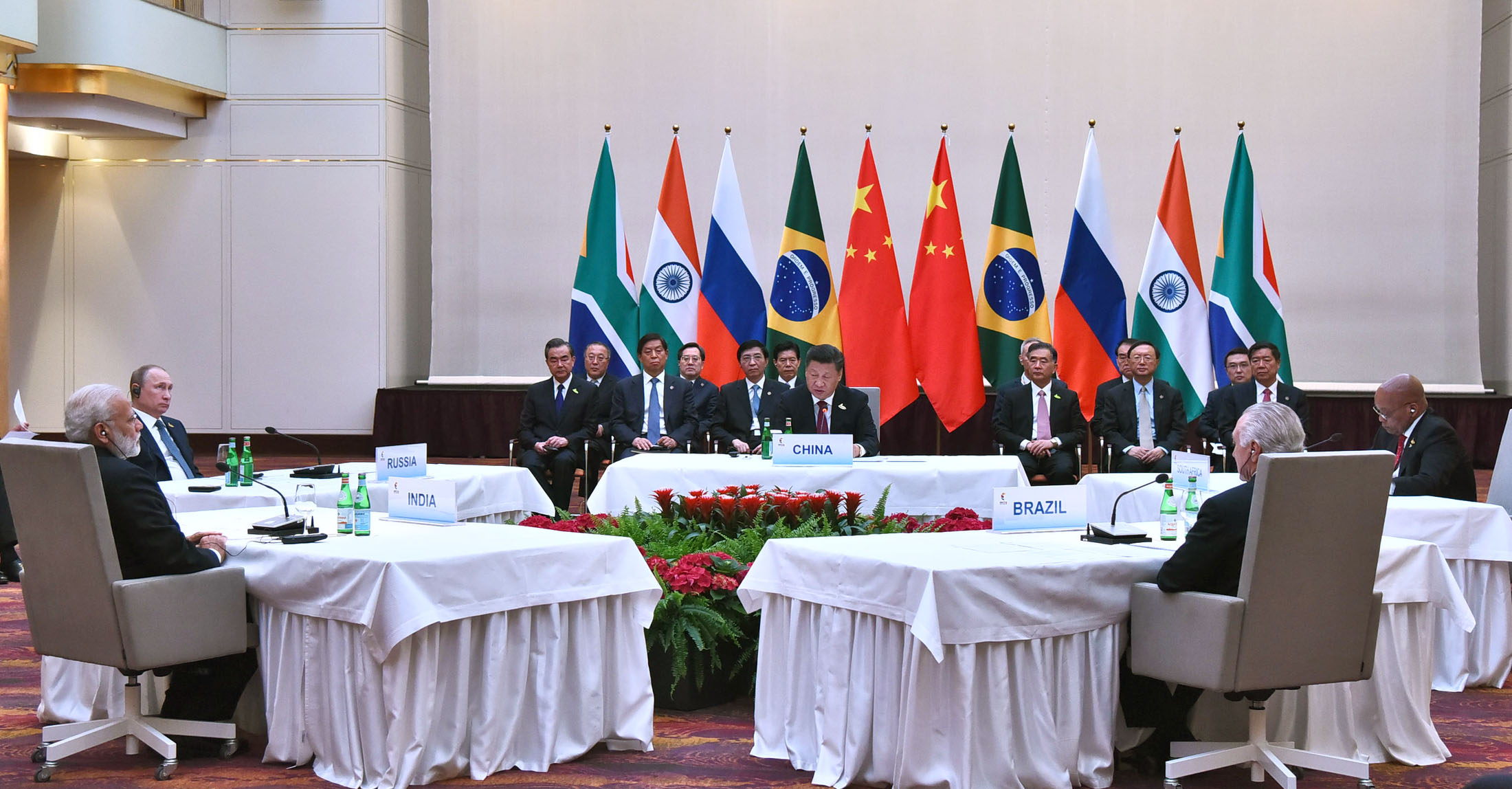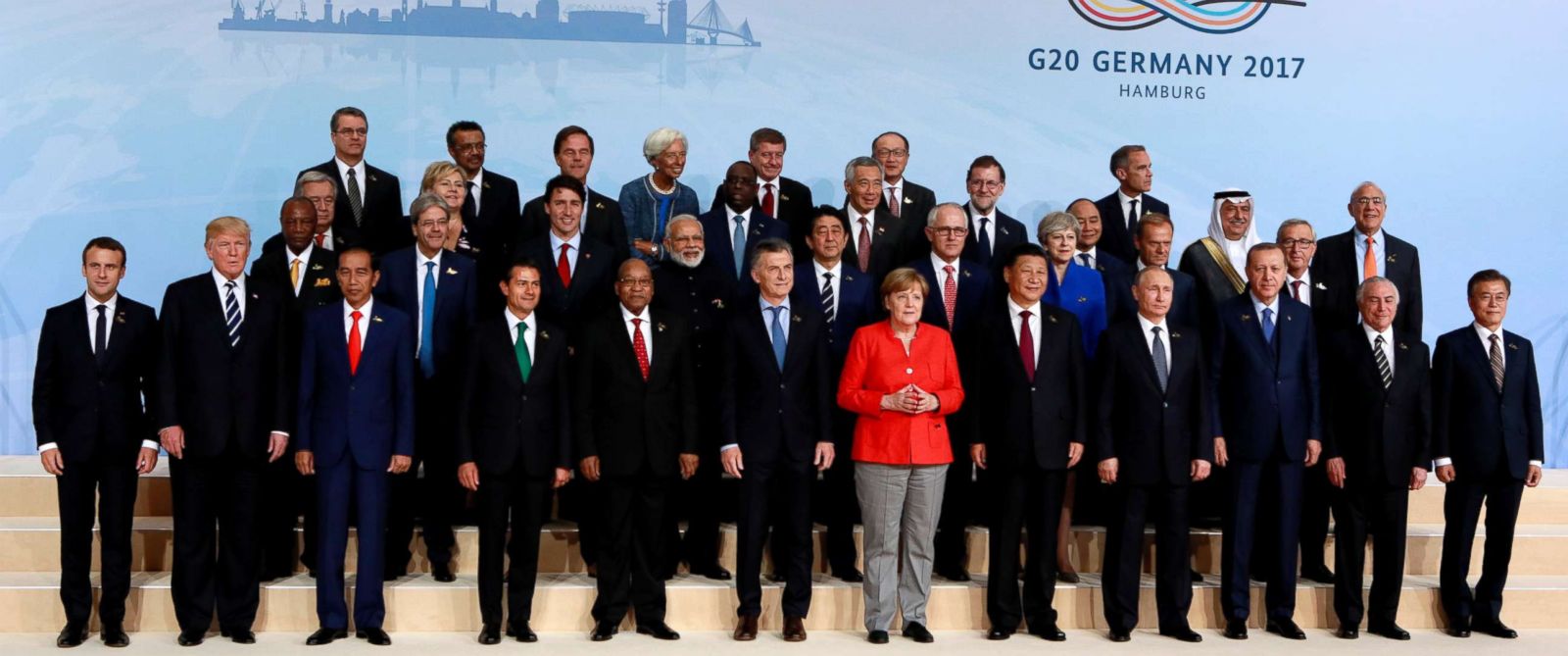G20 Hamburg: Towards a new “Globalized Security Just Order”
The 12th G20 summit meeting convened in Hamburg on the July 7-8th 2017 has raised a pertinent uneasily answered question: Will this salient event pave the way for the G20 to play a leading global role in creating a New Globalized Just Order? The predicament of G20 centres on going beyond the fulfilment of its prime mission of acting as “a kind of steering committee of global governance”. What gives the G20 such a distinct power leverage is that it represents two – thirds of the world population and more significantly it enjoys enormous economic capabilities. In statistical terms G20 global share of economic output approaches 80.3% whilst it’s GDP per capita equals $18487 in 2016. It is informative therefore to think that this topic has increasingly taken an inclusive Globalized Security format. Thus, in a globalized world “security can no longer thought of as a zero –sum game involving states alone. Globalized security, instead has five dimensions that include human, environmental, national, transnational, and transcultural security”. Furthermore “global security and the security of any state or culture cannot be achieved without good-governance at all levels that guarantees security through justice for all individuals, states, and cultures”.
Good-Governance is the buzzword of G20 as it strives to galvanize its vast capabilities in the direction of fulfilling the provisions of Paris Agreement and the 2030 Agenda for Sustainable Development. This is why it is important to build on the positive legacy of Hamburg meeting with the aim of shaping a consensual agreement on the main global humanitarian – developmental contention issues. But from an adverse perspective, “if the prevailing memory of Hamburg is of a fractious discussions between major global economies and little progress, then this could be the beginning of the decline of the G20 within the global governance ‘architecture’”. It is therefore pertinent for the Rising Powers -part of the G20 more inclusive body organization than G7/8- to shape their distinct vision whilst harmonizing their globalized security policies along the terms of creating a new global security just order.
Along this kind of argument, Turkey in line with the relatively well-established trend shaped by BRICS countries (Brazil, Russia, India, China and South Africa) can greatly help in launching a globalized security just order. It is of paramount interest to recognize that Turkey presided and hosted the 2015 G20 Summit in Antalya as part of its energetic economic drive to comply with the declared theme “Collective action for Inclusive and Robust Growth”. In fact this line of argument has a popular tune for all the principal drivers of economic development based on accomplishing the three major priorities: Inclusiveness, Implementation and Investments (so-called 3 I’s). By inclusiveness we mean people, women and small and medium enterprises (SME’s). As to implementation and investments they are closely related to translating theory into “good advantageous practices” reflected not just in material but in moral terms as well. Indeed fighting terrorism in all its forms and levels has been placed as a priority in the agenda of Turkey and other Rising Powers’ policies.
Admittedly, examples of successes or failures can vary from one country to another depending on the rapidly changeable environmental circumstances and on the whole at the popular level have to take into account the rising demands of their populations to create secure, just and prosperous communities. Clearly since 2016 G20 summit meeting convened at Hangzhou, China has diligently worked on building its long-term global leadership role by focusing on establishing “good- neo-liberal economic governance”. Hence, China the second global economy had to enforce the provisions of its global digital economy something that need more active , intensive cooperation and coordination by the main key drivers of globalized economies mainly at the state level without excluding the rising role of peaceful economically developing non-state actors such as NGO’s (Non-Government Organizations).

The informal meeting of leaders of the BRICS countries, on the sidelines of the 12th G-20 Summit, at Hamburg, Germany on July 07, 2017.
It is interesting and informative to acknowledge that with Donald Trump’s largely anti- climate change environmental policies (i.e. exemplified in the decision of US withdrawal from Paris Agreement) and protectionist economic policies, China found the conducive opportunity to play a more dynamic leading role in championing neo-liberal economic and environmental policies. The clear model represented in the form of China-EU Agreement on climate change push the momentum towards futuristic steps along the line of global economic freedom and trade. How China will translate its theoretical conception into a pragmatic realistic trend depends on the successful establishment of areas known as neo-liberal economic zone of multinational interests’. In case the multilateral frame of cooperation has not been formed there is always the prospect of resolving problems or even crises by asserting the importance of dialogue and mutual peaceful negotiations among the main participants of BRICS or other associated countries. But the hope is still there that China will continue its strenuous relatively successful efforts to coordinate BRICS interests prior to the convening of the BRICS summit meeting to be held in Xieman later this year. The outcome of such meetings may not be certain but it can be of interest to other concerned powers as they work out their respond to the pioneering actions of the primary players in the geo-political and economic game.
Russia for one has also worked hard under Putin’s authoritative leadership to explore more avenues of viable profitable opportunities to promote its global geo-strategic –economic interests. By the time Argentina convene the 2018 G20 meeting next year, BRICS states (Rising Powers) should clarify the points of their convergent and contradictory interests in order to shape new vision and mobilize their capabilities toward launching a New Globalized Security Just Order a toll deal to achieve but the journey of 1000 miles starts with the first mile. Finally, a great deal of success or even failure will depend on whether Trump’s administration can restore confidence across the landscape of Rising Powers. The latter for their part have to enforce the implementation of collective global collaboration values based on justice and peace.

This article is published under a Creative Commons Attribution-NonCommercial 4.0 International licence.

